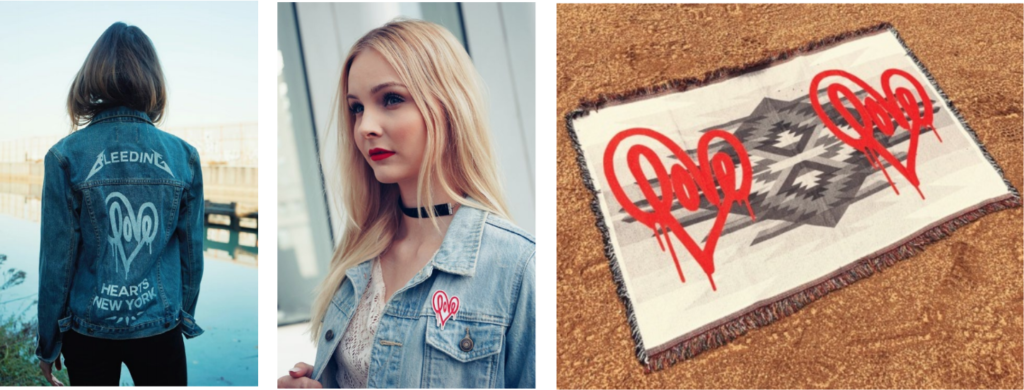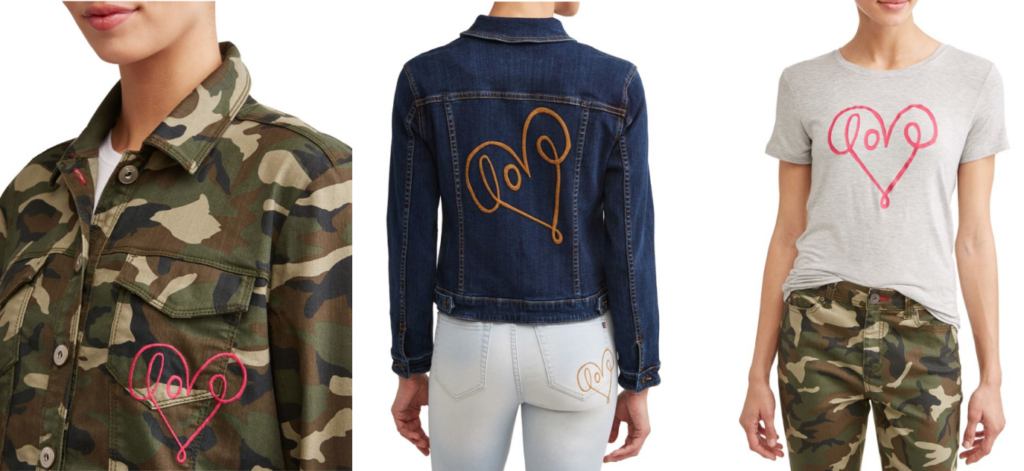Law & Politics
A Street Artist Is Suing Walmart and Ellen DeGeneres for Allegedly Stealing His Signature Heart Logo
A clothing line released by the company this year prominently features a design that looks suspiciously similar to the artist’s own.

A clothing line released by the company this year prominently features a design that looks suspiciously similar to the artist’s own.

Taylor Dafoe

Who owns “love”?
It’s a question posed by Julian Rivera, a street artist known for his signature heart symbol surrounding the word, in a lawsuit against Walmart and celebrity TV host Ellen DeGeneres. He claims the company and media personality appropriated his signature design for a line of apparel.
Earlier this year, the retail giant released a clothing line made in collaboration with DeGeneres called EV1. Each piece featured a heart logo that rounded off into a cursive “love” at the bottom. The design bears a striking resemblance to Rivera’s own, which he often uses as a signature on his artworks and apparel, much of which is sold through an online shop.
In a complaint filed in a California District Court this week, Rivera’s lawyer, Jeffrey Gluck, accused the company of copyright infringement, demanding that they remove the items from their shelves and pay monetary damages.
The use of the design is “particularly damaging,” the complaint states, “because Rivera has carefully avoided any association with corporate culture or mass-market consumerism.”
“Despite offers, he has very rarely made his original art available as part of corporate advertising campaigns—partly for artistic reasons but also because doing so would diminish the value of his work,” the complaint alleges. “Indeed, nothing is more antithetical to a street artist’s credibility than association with mass-market consumerism—of which Walmart is the epitome. People who recognized his design in the EV1 Collection would have concluded that Rivera ‘sold out,’ diminishing the value of his work and reputation.”

Apparel from Walmart’s EV1 line, made in collaboration with Ellen DeGeneres.
Rivera first brought the issue to the company’s attention this May, according to the complaint. After stating on multiple occasions that they “needed more time to investigate the matter,” Walmart’s attorney’s issued a full response to the artist this month, claiming that they had not copied the work, that their design was significantly different, and that—according to the complaint—Rivera’s logo “reflected no appreciable creativity.” The case may ultimately hinge on the court’s determination of the uniqueness of the “love” symbol.
“Walmart is an intellectual property owner and respects the intellectual property rights of others,” the company said in a statement to artnet News. “Once we are served with the complaint, we will respond appropriately with the court.”
Rivera’s lawyer, Gluck, has represented a number of designers and street artists who have allegedly been ripped off by corporations. In 2016, he represented the estate of Dash Snow in a lawsuit claiming McDonald’s used the late artist’s “SACE” graffiti tag in a marketing campaign. Before that, he helped the street artist RIME bring a case against Jeremy Scott for supposedly copying one of Rime’s designs for a Moschino clothing line. Earlier this year, Gluck fought on behalf of a graffiti artist whose illegal street painting was used as a backdrop in an H&M ad.
Gluck did not immediately respond to request for artnet News’s request for comment on the Rivera suit.